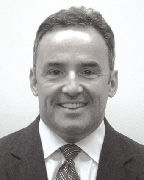Although the first two weeks of October were tough on the financial markets activity in the multi family market is beginning to heat up once again. Quality properties in Boston and the adjacent suburbs are getting the most attention from buyers right now especially brick buildings with separate utilities. The problems in today's market are not due to a shortage of investors seeking to buy but the gap between what a buyer is willing to pay and a seller is willing to take. In the Greater Boston area properties are still trading at CAP rates similar to the peak however due to rising costs associated primarily to real estate taxes, insurance and fuel there has been a decrease in the price per unit.
The long term investor is finding this market to their advantage now that the condo conversions have cooled down. The last several years have found them sitting on the sidelines since most deals were priced based on conversion and made no sense financially as a long term hold. They are actively looking to acquire properties that are less management intensive and will pay top dollar for the better quality ones in and around Boston. Due to their current holdings and management experience they have the equity and banking relationships that allow them to close quickly with lesser contingencies than most investors.
In addition there is the short term Buyer that is seeking deals that they deem as good value. These can be properties that are in need of work or in need of new and aggressive management. Many of these investors are converted developers or condo converters who need to keep active. They have the monies and the resources to close quickly if it's the right deal. Due to the fact that there are lesser large multi-family deals in trouble these investors are keeping busy acquiring residential foreclosures with the hopes they can buy, fix and sell to an end user.
A recent entry into the market is the investor that is disillusioned with the returns they are receiving or possibly losing in the stock market. With recent guidelines allowing investment through an individuals retirement account these investors are looking for a reasonable cash flow and long term appreciation. This comes at a good time for the multi family market since this could be an investor that replaces the 1031 investor who purchased after selling their smaller multi-family properties during the residential boom. Due to the decrease in residential values there has been a decrease in 1031 investors purchasing in the outlying markets such as Springfield, Holyoke and Hartford where these investors found good values. The decrease in 1031 investor activity has lead to price stabilization in these markets making them attractive once again on a cash flow basis.
The recent tightening of the residential lending guidelines is to the advantage of most multi-family owners. During the housing boom many property owners lose their tenants to home ownership because the payments to own are close to the cost to rent. On top of that the once aggressive lending programs allowed buyers to purchase with little or no money down. Now that these aggressive lending programs are no longer available there is less opportunity for a tenant to buy therefore increasing the demand for rentals.
Although most investors would prefer buildings with separate utilities we are seeing increased occupancies in those that do provide heat and hot water. With the income from higher occupancy and the increase in rent for utilities the additional income is closing in on the expense for fuel. Recent decrease in fuel costs is resulting in less of negative perception by investors for buildings where the heat is provided. Another trend we are seeing is owners converting from oil heat to gas with the utility company making the conversion attractive by providing a rebate for a portion of the installation cost.
To summarize, the fundamentals of multi family properties as an investment are still very strong. Occupancies are up due to less tenants converting to homeowners. Interest rates are still low and financing still available for deals that make economic sense. There are still plenty of investors looking to buy but the majority are looking for deals for investment purposes rather than condo conversions.
Rich Cawley is with United Multi Family R.E., Braintree, Mass.
Tags:
The fundamentals of multi family properties as an investment are still very strong
October 29, 2008 - Spotlights









